Recently, the University of Medicine and Pharmacy hosted the scientific conference “Artificial Intelligence (AI) in Vietnam Healthcare : Opportunities, Challenges and Development Orientation - AI4Health 2025”, attracting the participation of leading experts, managers and researchers in the field of AI and healthcare.
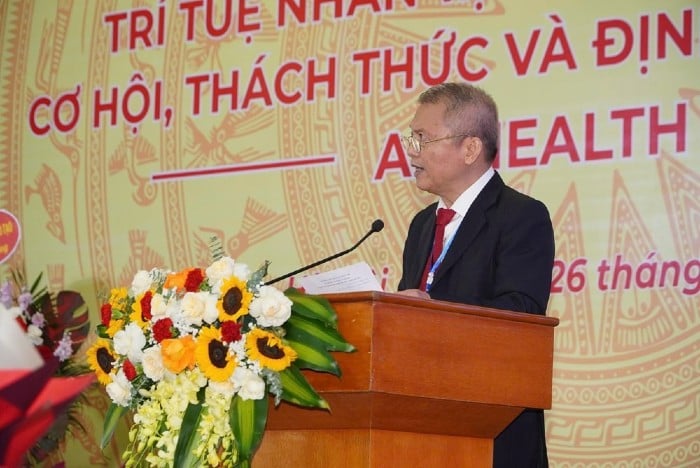 |
| Prof. Dr. Le Ngoc Thanh, Principal of the University of Medicine and Pharmacy, Vietnam National University, Hanoi, talks about the role of AI in medical examination and treatment. |
The highlight of the conference was the announcement of the “AI4Health 2025 Consensus” document, which affirms that AI is a key driving force in creating a modern, safe and sustainable healthcare system.
The document sets out six principles for AI development in healthcare, emphasizing core values: human-centered, ensuring ethics and safety, standardizing and securing data, promoting innovation, enhancing international cooperation, and sustainable development for public health.
At the same time, the Conference agreed to commit to five actions to build a legal and ethical framework for medical AI, develop a national health data infrastructure, promote research and innovation in the field of AI, train interdisciplinary human resources in health and technology, and establish the Vietnam AI4Health Alliance, a national network for cooperation and sharing of biomedical data.
Talking about the importance of AI data in healthcare, Mr. Do Truong Duy, Director of the National Center for Health Information, Ministry of Health said, if artificial intelligence is the brain, then data is the blood that nourishes the nervous system of the digital healthcare industry. Because in healthcare, data not only serves treatment but also forecasting, management and policy planning.
We have a lot of medical data but it is fragmented, there is not enough reliable data for AI to learn and understand Vietnamese people about Vietnamese healthcare. The data is fragmented, lacks security, and lacks human resources with information technology skills.
According to the 2024 survey report of the National Medical Center, 13% of facilities lack data, 66% lack funding, 28% lack IT human resources. Health insurance only uses information technology for payment, and there are > 200 million records/year nationwide.
Health insurance examination and treatment that has not been shared to develop other digital health applications including AI. Or preventive medicine 34 provincial/municipal CDCs have not been connected; Vaccination: 98% of the population lacks clinical data integration; 3,321 commune/ward health stations have enough electricity, but lack AI equipment.
Prof. Dr. Le Ngoc Thanh, Rector of the University of Medicine and Pharmacy, Vietnam National University, Hanoi, affirmed that AI is not just a technology but also a promise of a more humane, precise and fair medicine. Vietnam needs to seize this opportunity to become a regional center for research and application of artificial intelligence in medicine.
From a doctor's perspective, Associate Professor, Dr. Nguyen Le Bao Tien, Deputy Head of the Faculty of Medicine, Deputy Director of the University of Medicine and Pharmacy Hospital, Linh Dam campus, pointed out that the Vietnamese health system is currently divided into three levels: central, provincial/municipal and commune/ward.
Health insurance has covered 93% of the population, but the quality is uneven, and is too concentrated in central hospitals. There is a lack of a national health data platform, hospitals have not been fully digitized, medical staff are concentrated in urban areas, and there is a lack of specialists at district and commune levels, leading to overloading of central hospitals. In this context, AI can support coordination, patient stratification, optimization of care processes, training, remote diagnosis, and administrative reduction.
Associate Professor Nguyen Le Bao Tien emphasized that AI can become a “digital assistant” to help doctors at lower levels read films, suggest diagnoses and advise on treatment regimens. However, most of the data is currently on paper, lacking standardization, duplication and discrepancies, so the first thing to do is to clean the data.
At the same time, the implementation of AI requires a clear legal framework. He affirmed that AI is a tool to empower doctors, not a competitor. Doctors who know how to use AI will be the leaders of future medicine.
According to Prof. Dr. Nguyen Thanh Thuy, President of FISU Vietnam, Chairman of the Council of Professors of Information Technology, Chairman of the Vietnam Association of Information Technology, the biggest challenge today is not the accuracy of AI models, but the availability, standardization and interconnectivity of medical data.
Data is considered a valuable resource but is fragmented, unstandardized and lacking in synchronization, a bottleneck that needs to be urgently resolved.
For AI to truly create a modern and sustainable healthcare system, Professor Nguyen Thanh Thuy proposed three strategic pillars: first, standardize national healthcare data according to international standards so that all AI applications can be expanded, objective and effective; second, train interdisciplinary and cross-disciplinary human resources who understand pathology and are proficient in data science and AI; third, build a legal and ethical framework for AI, ensuring transparency, accountability and not letting “black boxes” make decisions related to human life.
On the side of the Ministry of Health, according to Mr. Nguyen Tri Thuc, Deputy Minister of Health, the Vietnamese health sector has applied AI relatively early in many fields such as image diagnosis, optimizing treatment regimens, supporting cancer treatment, managing electronic medical records, remote medical examination and treatment, and disease forecasting.
Initially, these applications have brought positive results, helping to reduce administrative procedures, optimize hospital operations and improve treatment quality, especially in remote areas. However, AI is only a support tool, it cannot replace humans.
To apply AI in the right direction, the Ministry of Health determined that it is necessary to complete the legal document system, determine a strategy for research, development and application of AI in healthcare, build a digital platform and large data warehouse, protect patient data and establish ethical guidelines, ensuring that all final treatment decisions are supervised and confirmed by doctors.
The Ministry of Health leader emphasized that the legal corridor must be one step ahead. The Ministry of Health will closely coordinate with the Ministry of Science and Technology and other agencies and experts to build a legal framework and ethical rules for testing, deploying and being accountable for medical AI products, while creating conditions for innovation to develop in a controlled and safe manner.
Source: https://baodautu.vn/ai-trong-y-te-viet-nam-huong-toi-nen-y-hoc-nhan-van-chinh-xac-va-cong-bang-d423293.html


![[Photo] Prime Minister Pham Minh Chinh attends the 5th National Press Awards Ceremony on preventing and combating corruption, waste and negativity](https://vphoto.vietnam.vn/thumb/1200x675/vietnam/resource/IMAGE/2025/10/31/1761881588160_dsc-8359-jpg.webp)


![[Photo] Da Nang: Water gradually recedes, local authorities take advantage of the cleanup](https://vphoto.vietnam.vn/thumb/1200x675/vietnam/resource/IMAGE/2025/10/31/1761897188943_ndo_tr_2-jpg.webp)




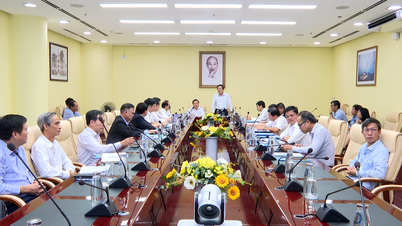



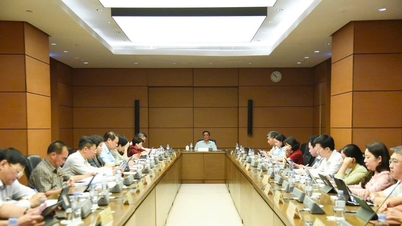

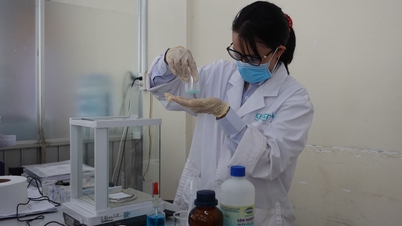





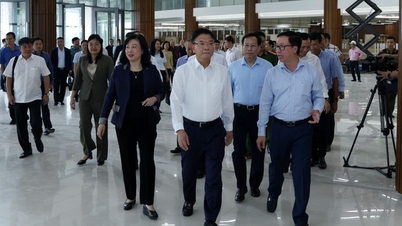
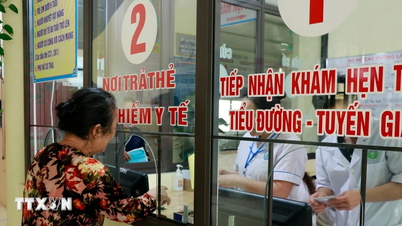


























































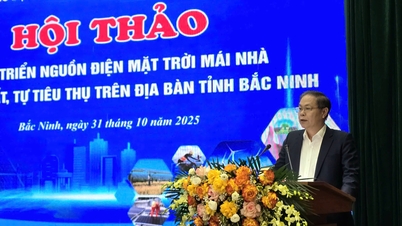


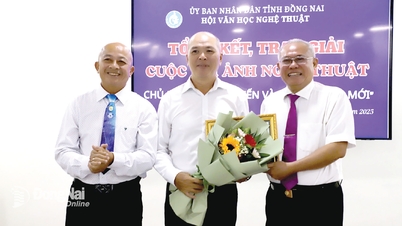























Comment (0)